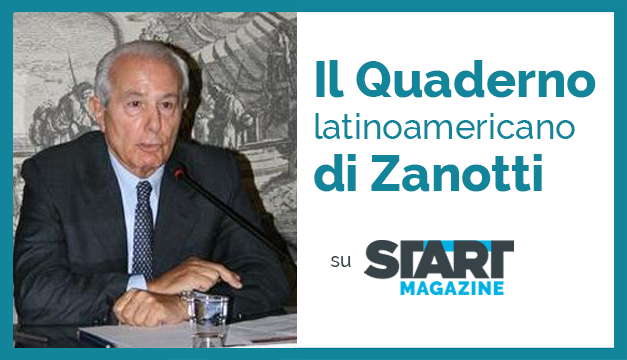How the US elections in Brazil, Colombia and Mexico will affect

The double bond between the United States and Latin America in the test of the presidential elections. The in-depth study by Livio Zanotti, author of the “ ildiavolononmuoremai.it ”.
More alive than ever in the whole world, the wait for the outcome of the presidential elections next Tuesday, November 3 in the United States involves especially Latin America. That in the profoundly unequal and nonetheless mutually invasive relations with the north of the continent, to its exorbitant political-economic pressure of an imperial character opposes that of migration, often illegal and always conspicuous (desperation is a spring that makes the emigrant's impulse inexhaustible) . A by now historical interaction, whose collateral effects affect all aspects of both individual and collective life of the whole of America, to the point of configuring a cultural exchange so chaotic that it periodically turns out to be a primary factor of tensions and crises; but in the happiest cases also of mutual development.
Although coming from different countries and histories, but united and basically assimilated by the common Spanish language, Latinos currently constitute the first ethnic-cultural minority in the United States. And therefore also an electorate that for some years has surpassed that of Afro-Americans in number: 32 million have the right to vote (13.3 percent of a total population that adds up to 330 million Americans). It manifests homogeneous claims today openly denied: effective equality of rights with native citizens. First of all, the opening of immigration policies, the family reunification that Donald Trump has torn with unprecedented cruelty; access to health protection and trade union rights further weakened by the crisis.
Both Trump and Biden, aware of their importance, dispute their favor until the last scream of the electoral campaign. Except in Florida, where according to tradition and polls the approximately two million citizens of Cuban origin would vote predominantly for Republican candidates, counterbalanced by Puerto Ricans more inclined to support Democrats, Latinos on the whole are expected to largely prefer Biden as well as Democratic candidates and minor allied parties for the Chamber and Senate. Their social problems and personal values bring them closer to the interests of employees and the middle class of large urban agglomerations, which, although rarefied by the dissolution of traditional industry, are still a strong point of the democratic front. In Texas, Arizona, New Mexico, Pennsylvania, the Latin vote could be decisive.
Nor will the direct effects of Tuesday's consultation on the evolution of Latin American governments be less relevant. For some of them the near future will decide. The predicted (and nevertheless uncertain) victory of Biden could precipitate and in any case modify the uncertain balances that govern the presidency of the former captain and the still evangelical priest Jair Bolsonaro in Brazil. Poised between the exasperated fundamentalist individualism – post-truth and post-political – his own and the loyal ones (a definitively raving, negationist and conspiratorial militancy); and the military network, conservative sentinel of the great oligopolistic interests and a structured element of the government, therefore essential. Brazil represents an extreme case for Bolsonaro's fideistic identification in Trump's politics and in his person, yet not unique.
A jolt accentuated by the consequences of Covid is also expected in Colombia, due to the substantial immobility in which Ivan Duque's policy has recently fallen and the resulting crisis. His silent (but bloody) boycott of the peace agreements reached with the FARC guerrillas by the previous head of state, Juan Manuel Santos, aggravated the level of violence and made the economic slowdown even more abrupt. This in a region – the northern one of the subcontinent – already severely damaged by the failed authoritarian government of Nicolas Maduro in Venezuela, from which more than 10 percent of the inhabitants have emigrated, 4 million in the last 5 years, including one million children (Unicef ). Trump has only exasperated the tensions in the area, his defeat could reopen spaces for real and effective dialogue.
Even Mexico, whose president Andrés Manuel Lopez Obrador (AMLO), a left-wing nationalist-populist certainly not devoid of political ease (which he calls pragmatism and its critics opportunism), has been able to find some kind of understanding with Trump, without plus his gun aimed at the temple could clear up the tangle into which the economy has plunged, despite some very recent signs of recovery in production and consumption. Country of rest and refreshment of the uninterrupted migratory current that from all the poor and ruined Central America presses on the border with the United States, Mexico could benefit from the well-defined flexibility left to glimpse by Biden in the event that it actually manages to enter the White House (and with him, however, also a democratic majority in Congress).
It is also to be believed that if Trump himself could not oppose the Federal Reserve's decision (their respective prerogatives aside) to keep the interest rate close to zero, to encourage investment and consumption, he would not further depress the economy of the United States; a fortiori Biden would be in favor of a stabilization of exchange rates which is essential in order not to aggravate and possibly favor the reorganization of Latin American public debts and the relaunch of their exports. In this case, Argentina would see the margins for economic recovery and containment of inflation widen. And smaller fluctuations should also face the governments bordering the Pacific, starting with Chile engaged at least for the next 2 years in the constitutional renewal process desired by the avalanche vote at the Referendum last Sunday 25.
This is a machine translation from Italian language of a post published on Start Magazine at the URL https://www.startmag.it/mondo/come-incideranno-le-elezioni-usa-in-brasile-colombia-e-messico/ on Mon, 02 Nov 2020 07:20:08 +0000.
